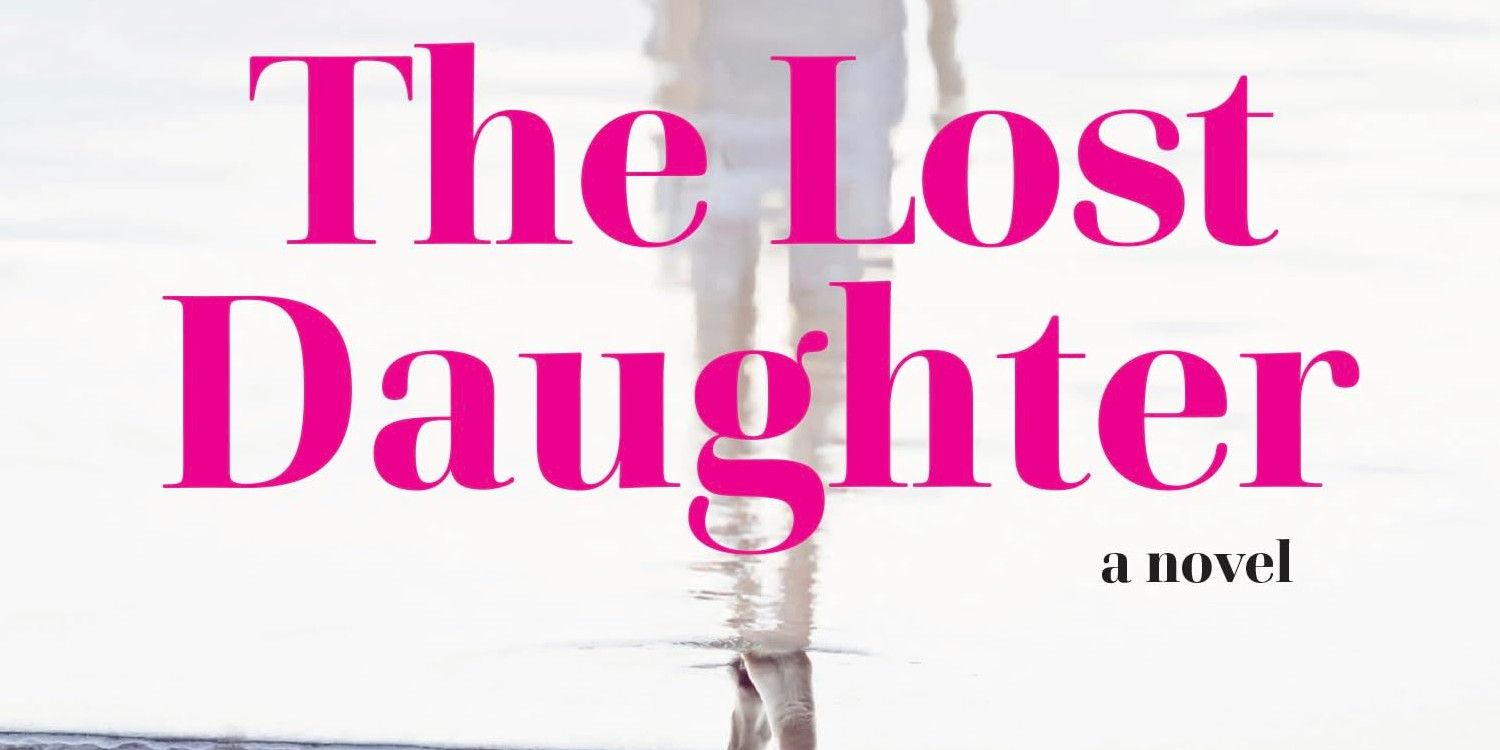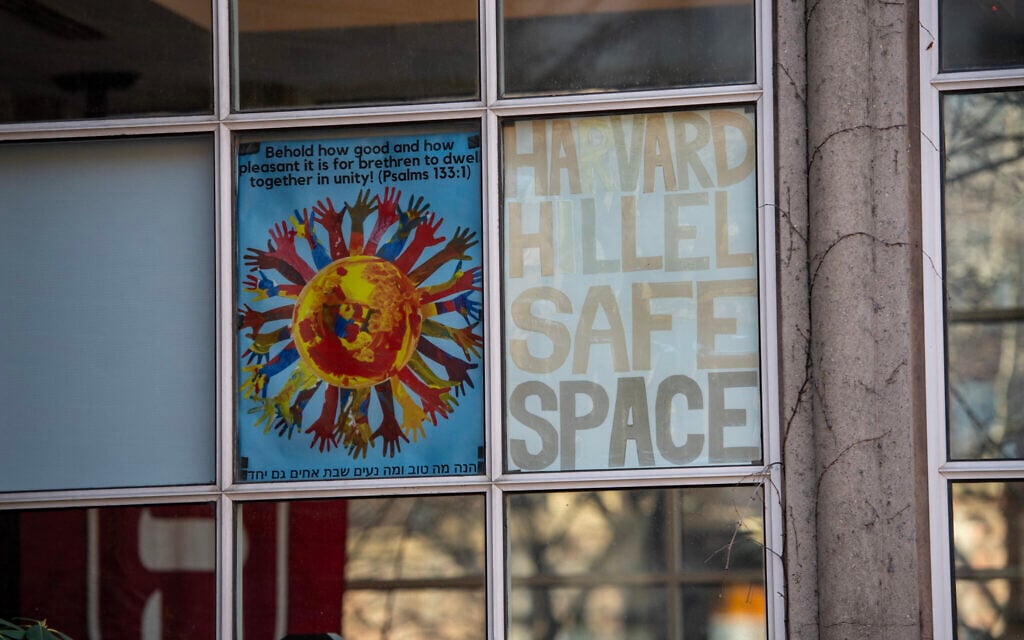Some of the best movies ever made have been adapted from equally iconic books, and these great works of fiction shouldn’t be forgotten. Though there are cases when the film iteration of a novel is better, when it comes to these titles, the book and movie go hand-in-hand, enriching the audience’s experience by consuming them together. Reading these novels before watching the films helps the viewer fully understand what they’re seeing onscreen and will give them something to compare and relate to when watching the story unfold.
There are many movie adaptations that do their books justice, even if they have to cut some elements for time or speed up the pacing. This is the most common way that a film might differ from its source material, as movies must move fast and don’t have the luxury of spending time on descriptions and heavy world-building. Though it’s disappointing when a beloved character or plot point doesn’t make it into the screen iteration of a favorite book, it’s often in service of the larger narrative, making the movie the best possible take on the themes and message.
10
Jurassic Park (1990)
Written by Michael Crichton
Jurassic Park has become one of Michael Crichton’s best-known stories. Though the prolific science fiction author has penned many fantastic works, Jurassic Park has stood the test of time thanks to its film adaptation, but the original source material shouldn’t be overlooked. Though Crichton doesn’t shy away from pushing the boundaries of science and realism with the creation of modern dinosaurs, this was a brilliant idea that has captured the imaginations of readers and audiences for generations.
Related
10 Jurassic Park Characters That Were Completely Different In The Books
Jurassic Park was based on a book by Michael Crichton, but many of the iconic characters in Steven Spielberg’s movie are very different in the novel.
As one of Steven Spielberg’s highest-grossing movies, you’ll be hard-pressed to find a person who hasn’t seen Jurassic Park. The movie is so synonymous with the story and Spielberg’s career that many people might be surprised to learn it’s based on a book, especially since so many sequels and spinoffs have been produced. However, to properly understand the legacy and impact of Jurassic Park, reading the novel and then tackling the film is a great way to pay tribute to Crichton.
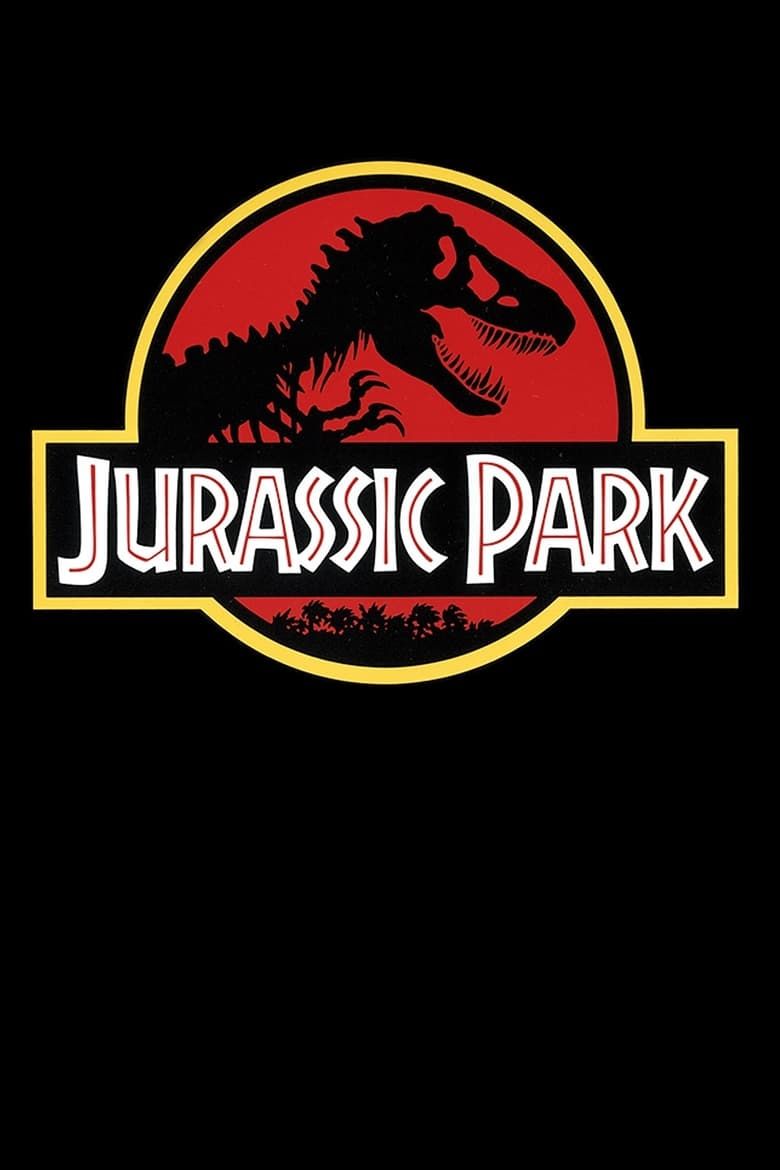
Jurassic Park
- Release Date
-
June 11, 1993
- Runtime
-
127 minutes
|
Title |
Rotten Tomatoes Critic Score |
Rotten Tomatoes Audience Score |
|
Jurassic Park (1993) |
91% |
91% |
9
The Book Thief (2005)
Written by Marcus Zusak
The beloved coming-of-age novel The Book Thief is a great introduction to the topic of World War II and the concept of death and grief for younger audiences. However, this isn’t to say that Marcus Zusak’s novel can’t be enjoyed by readers of all ages, as the emotional story will hit home for audiences no matter what. Though Liesel is young, she understands the larger political strife of the world, becoming aware of the power of words and knowledge when combating fascism and the rise of authoritarian governments.
Since the novel is narrated by Death, and this is a difficult concept to translate to the screen, The Book Thief movie isn’t as well-regarded as the book. However, it’s interesting to compare the adaptation of Zusak’s work and see how the characters are brought to life. Fans of Yellowjackets will recognize a young Sophie Nélisse, who portrays Liesel in the 2013 film. She’s joined by Geoffrey Rush and Emily Watson in a terrific ensemble cast that demonstrates a deeper understanding of the characters.
|
Title |
Rotten Tomatoes Critic Score |
Rotten Tomatoes Audience Score |
|
The Book Thief (2013) |
50% |
73% |
8
Wicked: The Life and Times of the Wicked Witch of the West (1995)
Written by Gregory Maguire
Wicked was a box office smash in 2024, but many fans of the movie and the stage musical would be surprised at how different they are from the book’s story. Written by Gregory Maguire, Wicked is a reimagining of the life of the Wicked Witch of the West from L. Frank Baum’s The Wizard of Oz. However, it’s a much more adult narrative, with violence and explicit scenes that place the characters into a shockingly harsh world that isn’t as quickly entrenched in magic.
Maguire’s book is much longer and more complex, not using the political plotline as a secondary element but focusing on it from the first moments of the story.
Maguire’s book is much longer and more complex, not using the political plotline as a secondary element but focusing on it from the first moments of the story. Reflecting on how starkly different the narratives are will change how most audiences view the story of Wicked and the central message of the piece. It will be exciting to see the character arcs in Wicked: For Good after the story in Wicked clearly drew closer inspiration from the musical than the novel.
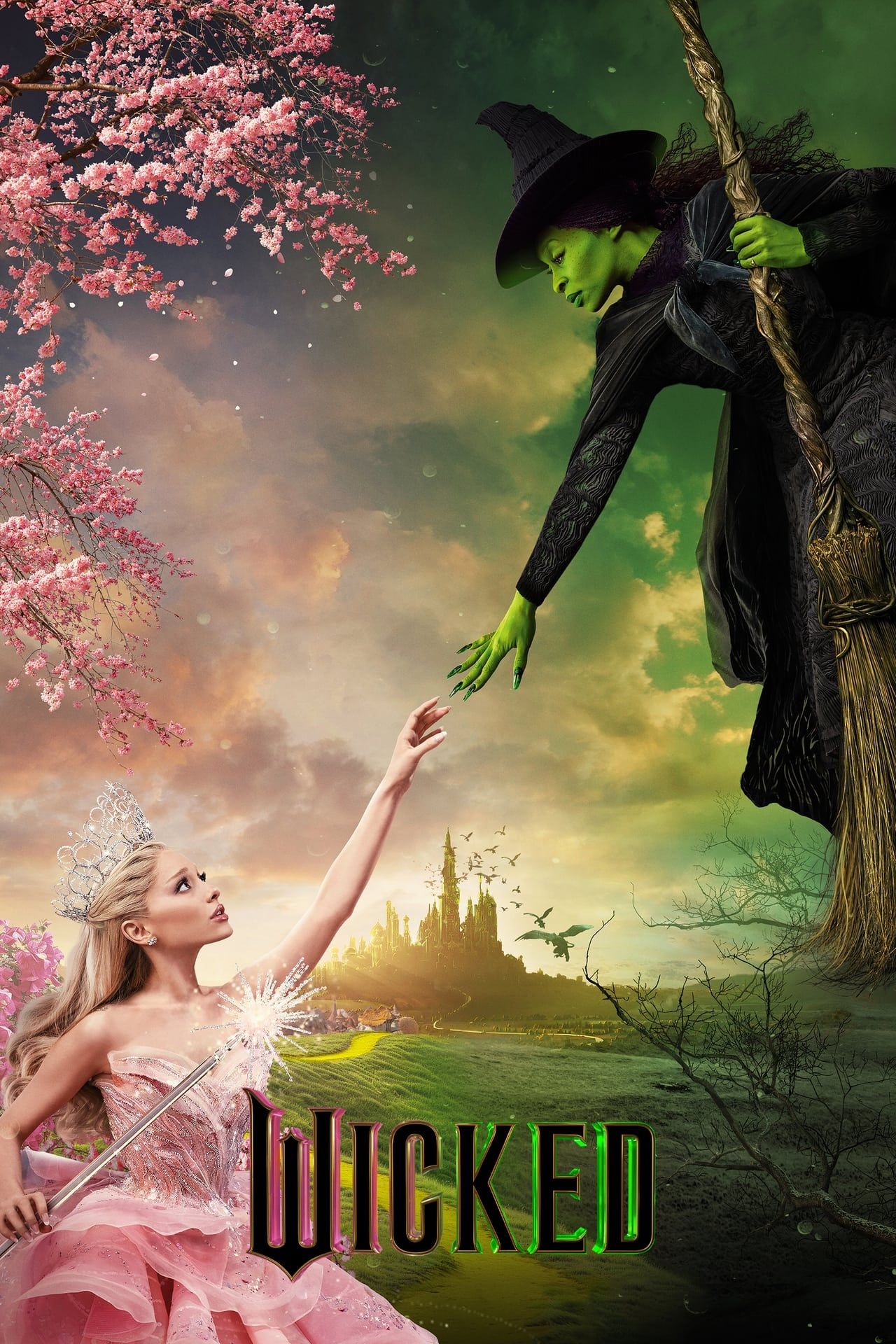
Wicked
- Release Date
-
November 22, 2024
- Runtime
-
160 Minutes
|
Title |
Rotten Tomatoes Critic Score |
Rotten Tomatoes Audience Score |
|
Wicked (2024) |
87% |
95% |
7
If Beale Street Could Talk (1974)
Written by James Baldwin
James Baldwin was one of the greatest writers of his generation, crafting beautiful, tragic portraits of human life. His 1974 novel, If Beale Street Could Talk, took many years to be brought to life onscreen, eventually adapted by Barry Jenkins, who wrote and directed the 2019 film. As visually gorgeous as Baldwin’s words are on the page, If Beale Street Could Talk is entrenched in the harsh realities of how the criminal justice system targets young Black men and how this oppression is felt by their loved ones.
It’s a heavy story, but the way Baldwin takes us on the journeys of Tish and Fonny, the central characters, is beautifully told and never gives up hope, even when the odds seem impossible. The movie is a worthy iteration of the narrative, but it’s well worth tackling the novel before watching the film. Reading If Beale Street Could Talk is also a great window into Baldwin’s larger body of work, which includes some of the best novels of the 20th century.
|
Title |
Rotten Tomatoes Critic Score |
Rotten Tomatoes Audience Score |
|
If Beale Street Could Talk (2019) |
95% |
68% |
6
Dune (1965)
Written by Frank Herbert
Frank Herbert’s groundbreaking sci-fi space opera, Dune, has inspired many similar books, movies, and TV shows. However, the recent 2021 and 2024 adaptations of the book are considered the best screen iterations of the story. There’s no question that Herbert’s novel is dense, packed with world-building and complex discussions of the economic trade systems of the story’s universe. This sets Herbert’s work apart from much of modern sci-fi, as it’s digestible, but it’s highly critical and interrogative of contemporary society.
The relevance and impact of Dune haven’t lessened as the years have progressed, and the best part of reading the book first is that the audience gets to experience much of the detailed work that the movies had to cut for time.
The relevance and impact of Dune haven’t lessened as the years have progressed, and the best part of reading the book first is that the audience gets to experience much of the detailed work that the movies had to cut for time. Characters, plot lines, and deeper discussions of the political and cultural implications of the work are lost in the films because they have to be streamlined for timing and viewer enjoyment. While it’s understandable why certain pieces of the plot were dropped, these elements make the book immersive.
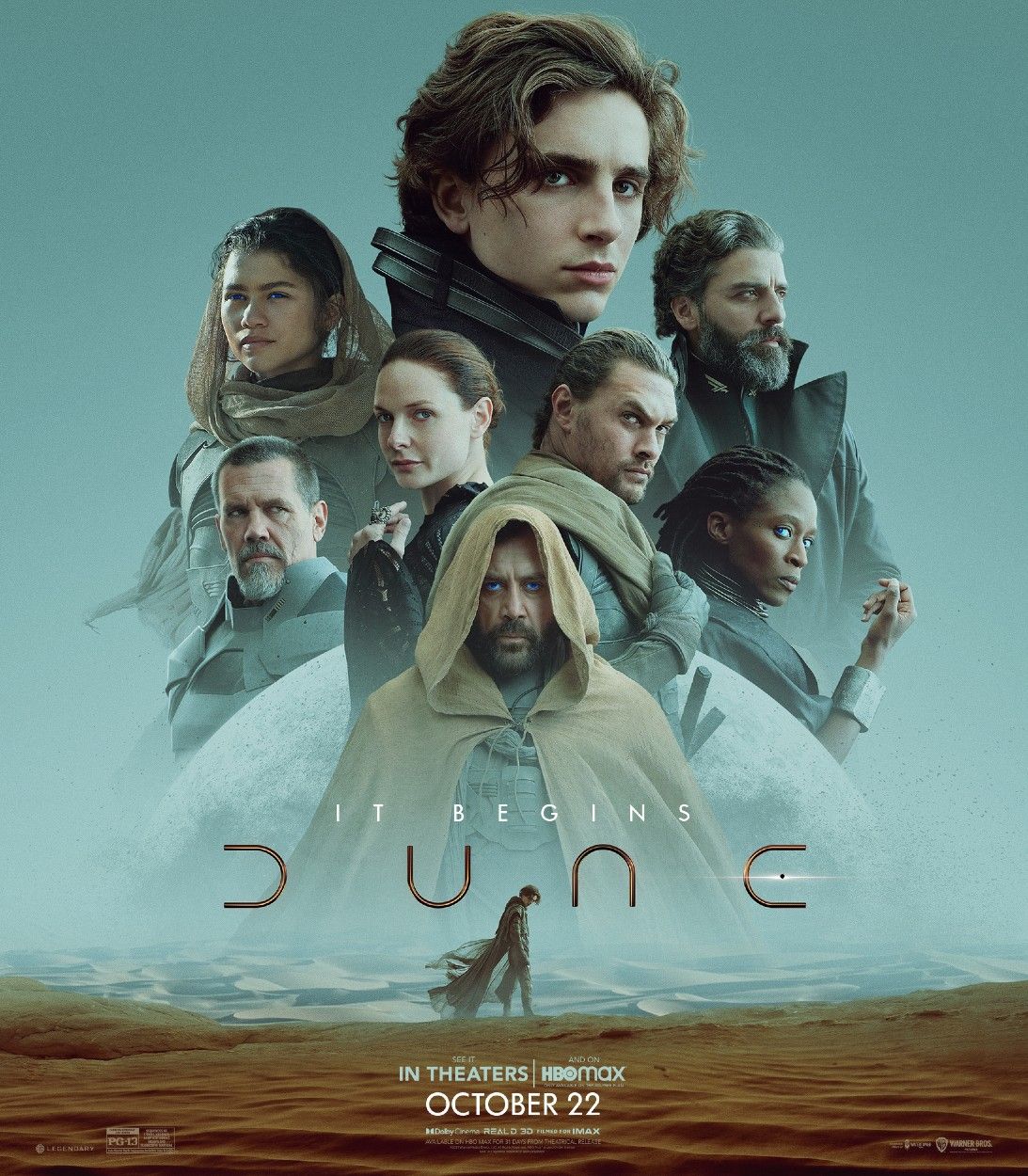
Dune
- Release Date
-
October 22, 2021
- Runtime
-
155 minutes
|
Title |
Rotten Tomatoes Critic Score |
Rotten Tomatoes Audience Score |
|
Dune: Part One (2021) |
83% |
90% |
5
Annihilation (2014)
Written by Jeff VanderMeer
Adapting a book like Annihilation for the screen is difficult, as the author, Jeff VanderMeer, leaves out many personal details and leans into the scarcity of dialogue. In the book, the characters remain unnamed; the protagonist is called Lena in the film and brought to life by Natalie Portman. Additionally, the way the reader might imagine the tunnel and the eventual interaction with the mysterious alien that’s creating Area X works even better within the imagination.
If you think Annihilation is a sci-fi movie that got too weird, VanderMeer’s novel takes this to the next level. Since VanderMeer didn’t have to worry about the physicality of bringing his creations to life, he makes them shocking, terrifying, and full of ambiguity, which works better on the page than on the screen. While Annihilation is still a sci-fi movie full of twists and turns, reading the book first will make some of the biggest questions of the story more easily answered.
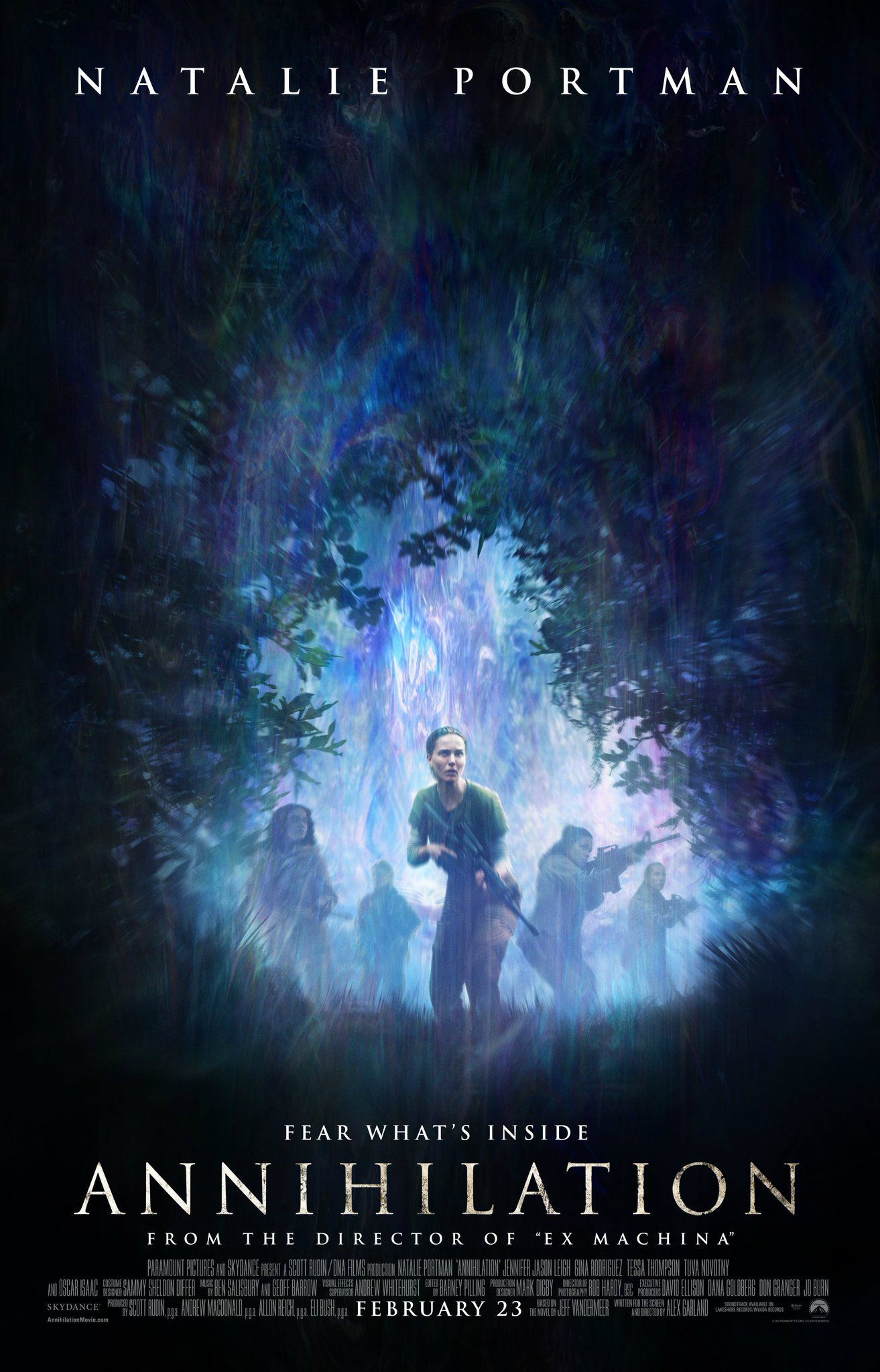
Annihilation
- Release Date
-
February 23, 2018
- Runtime
-
115 Minutes
|
Title |
Rotten Tomatoes Critic Score |
Rotten Tomatoes Audience Score |
|
Annihilation (2018) |
88% |
67% |
4
Persepolis (2004)
Written by Marjane Satrapi
The author of the original Persepolis comics, Marjane Satrapi, co-directed and co-wrote the 2007 film adaptation of the iconic series. While comics are recognized for their power and importance today, few series reflect this as starkly as Satrapi’s work, which chronicles her life in Iran during the Islamic Revolution. Full of thoughtful discussions of politics, religion, and the everyday experiences of coming-of-age, the film iteration of Persepolis draws from the distinct art style of the book.
Since the subject matter is so personal to Satrapi, it makes sense that she would present such a clear take on the story in the screen iteration.
Since the subject matter is so personal to Satrapi, it makes sense that she would present such a clear take on the story in the screen iteration. In the story, Marjane spends years in Europe, returns to Iran, and grapples with the way her country has changed. She has to make hard choices about where she wants to spend her life. Though the movie version of Persepolis is a stellar adaptation, consuming it the way Satrapi originally intended brings it to the next level.
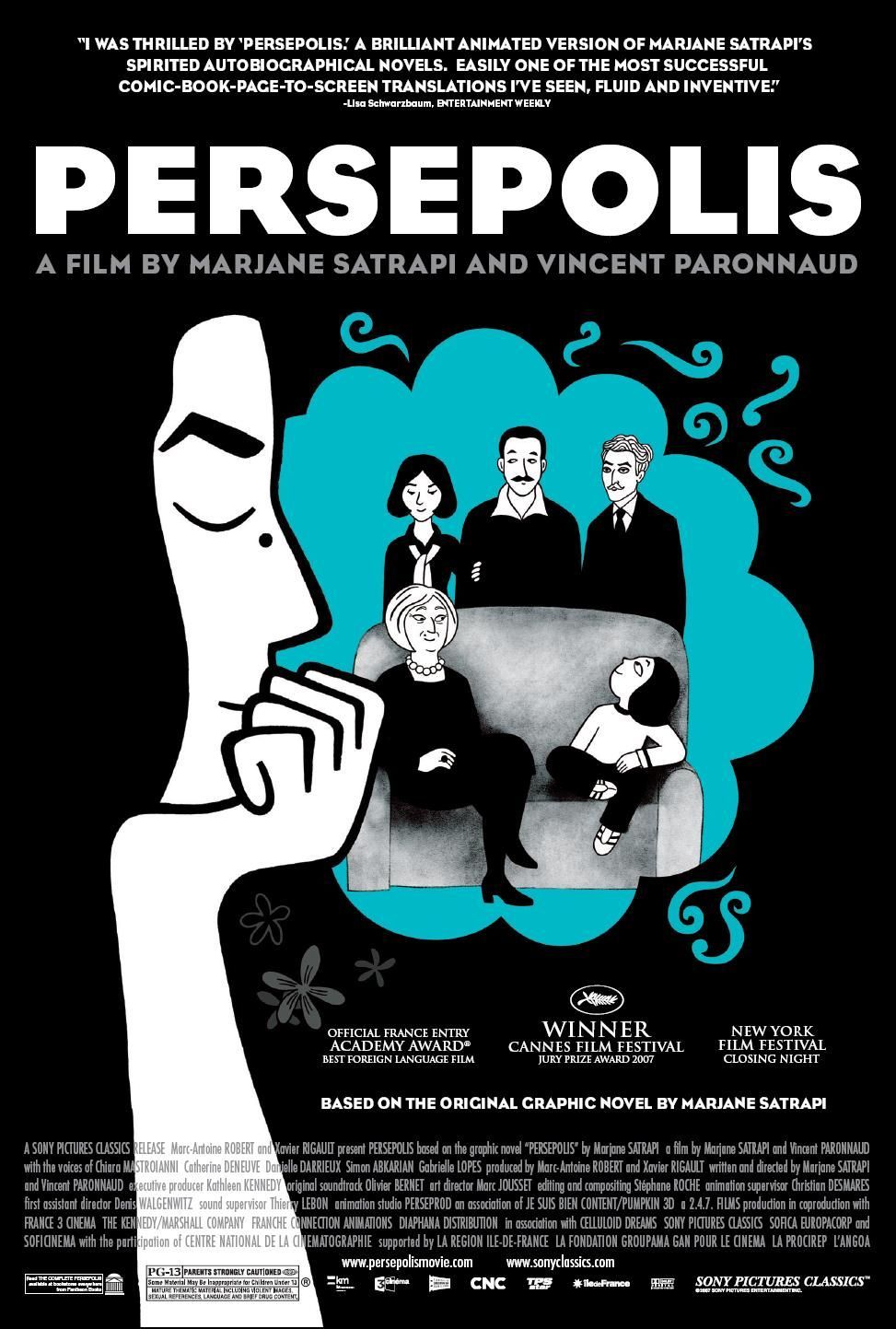
Persepolis
- Release Date
-
June 27, 2007
- Runtime
-
95 minutes
- Director
-
Vincent Paronnaud, Marjane Satrapi
- Writers
-
Marjane Satrapi, Vincent Paronnaud
|
Title |
Rotten Tomatoes Critic Score |
Rotten Tomatoes Audience Score |
|
Persepolis (2007) |
96% |
92% |
3
The Perks Of Being A Wallflower (1999)
Written by Stephen Chbosky
It’s unsurprising that The Perks of Being a Wallflower has an intimate understanding of the language and purpose of the book, as the author, Stephen Chbosky, wrote and directed the film. Involving the author in the filmmaking process can sometimes be risky, but Chboksy used his background in the industry to take his iconic story and give it the adaptation it deserved. Everything from the casting to the soundtrack immerses the audience in the narrative’s world.
The Perks of Being a Wallflower is an indie teen movie I can’t stop rewatching because it draws its story from one of the most timeless coming-of-age books of all time. Due to its emotionally intense and vulnerable plot, it’s better to engage with Charlie and his experiences throughout the novel first. This allows the reader to engage with the book the way Chbosky originally intended, with Charlie telling his story through the anonymous letter format and taking this into the viewing of the film.
|
Title |
Rotten Tomatoes Critic Score |
Rotten Tomatoes Audience Score |
|
The Perks of Being a Wallflower (2012) |
85% |
89% |
2
The Talented Mr. Ripley (1955)
Written by Patricia Highsmith
Even though The Talented Mr. Ripley is one of the most famous movies of the late 1990s, the original book series that invented Tom Ripley himself isn’t as widely read. For fans of mysteries, thrillers, and con artists, Patricia Highsmith’s The Talented Mr. Ripley is the perfect book to dive into. Written in the 1950s, there are some dated elements of the story, but it has stood the test of time well, as they’re full of subtext and deeper meanings that the more modern adaptations got to explore further.
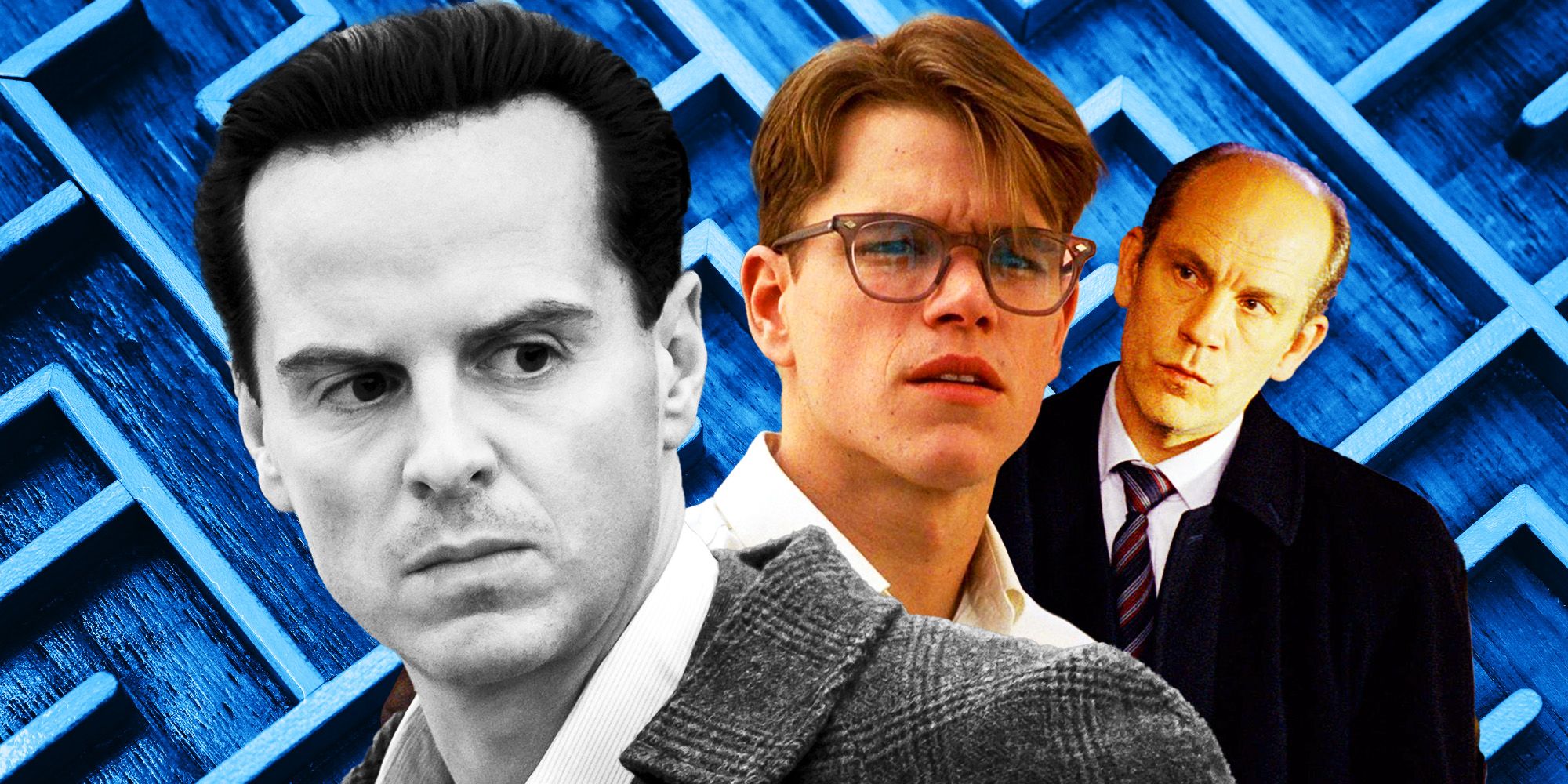
Related
Every Tom Ripley Movie & TV Adaptation, Ranked
The 2024 Netflix limited series Ripley is the latest of a number of films and television series that were adapted from Patricia Highsmith’s novels.
The recent addition to the story’s canon, the Netflix series Ripley, expands on Highsmith’s novel, providing an atmospheric reimagining of Ripley’s misadventures. While there have been many takes on the character Tom Ripley, from Matt Damon to Andrew Scott, it’s interesting to read the novels first to create your own idea of the man Ripley is. This makes it even more fun to see the different ways that he can be interpreted onscreen.
|
Title |
Rotten Tomatoes Critic Score |
Rotten Tomatoes Audience Score |
|
The Talented Mr. Ripley (1999) |
85% |
80% |
1
The Lost Daughter (2006)
Written by Elena Ferrante
Elena Ferrante, the acclaimed writer of the Neapolitan Novels, penned The Lost Daughter in 2006, chronicling the story of a middle-aged mother vacationing alone who becomes attached to a young mother and daughter she meets. In 2021, Maggie Gyllenhaal made her feature-length directorial debut in her adaptation of The Lost Daughter, starring Olivia Colman as Leda, the protagonist. Also written for the screen by Gyllenhaal, the film iteration of The Lost Daughter is a contemplative and moving portrait.
Since Gyllenhaal took on the project through an American lens, changes were made to some parts of the story, and Ferrante’s connection to the Italian landscape and cultural sensibilities was lessened. Reading the book first gives the reader an opportunity to get even more insight into Leda’s internal monologue, deepening their understanding and empathy for her before delving into the film. It’s exciting to see the gorgeous visuals that Ferrante expresses on the page brought to life onscreen after this.
|
Title |
Rotten Tomatoes Critic Score |
Rotten Tomatoes Audience Score |
|
The Lost Daughter (2021) |
94% |
56% |

